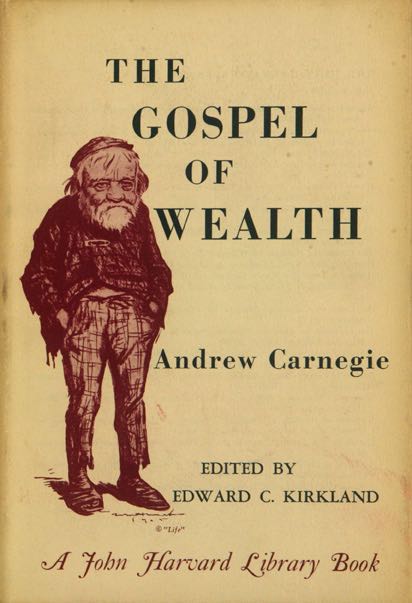The Gospel of Wealth: The Best Fields for Philanthropy
Reviewed date: 2006 May 6
Part II: The Best Fields for Philanthropy
The worst sin of philanthropy is indiscriminate giving, says Andrew Carnegie. Charity must never encourage dependence or reward sloth, but it should put industrious, hardworking poor people in a position to better themselves. Millions of dollars of charity are spent on endeavors that "really retard the progress of the people, because most of the forms in vogue to-day for benefiting mankind only tend to spread among the poor a spirit of dependence upon alms." Directly providing for the poor by giving them the necessities of life is a grave sin that only works to their own corruption.
Carnegie identifies seven areas in which a philanthropist's money can be well spent.
- Universities
- Free libraries
- Hospitals and medical research laboratories
- Public parks
- Performance halls
- Public swimming pools
- Churches
Except in the cases of universities and hospitals, Carnegie specifies that the gift must only be given on the condition that the community agree to bear the cost of operating and maintaining it the facility. His own favorite cause was libraries: he established thousands, and was instrumental in creating the public library system that Americans enjoy today.
Since Carnegie's time, it has become customary for modern governments to provide universities, free public libraries, and (in civilized nations) medical care, but the rest of the suggestions seem to still apply.
